The arrival of a new baby is often portrayed as a time of pure joy and blissful connection. While this is true for many, the reality for some new mothers is a much different, darker experience: postpartum depression (PPD). This serious mood disorder, affecting approximately 1 in 7 women after childbirth, can cast a shadow over what should be a period of celebration, leaving new mothers feeling overwhelmed, isolated, and profoundly sad.
While the “baby blues” – characterized by temporary mood swings, tearfulness, and irritability that typically subside within a couple of weeks after delivery – are common due to hormonal shifts, postpartum depression is a more persistent and debilitating condition. It’s vital to understand the difference and recognize the signs, as early detection and intervention can significantly improve outcomes for both mother and child.
Beyond the Baby Blues: Recognizing the Signs of PPD
Postpartum depression can manifest in a variety of ways, and its severity can vary from person to person. Some common symptoms include:
- Persistent Sadness and Hopelessness: A deep, pervasive feeling of sadness, emptiness, and despair that lasts for more than two weeks.
- Loss of Interest or Pleasure: A significant decline in interest in activities the mother once enjoyed, including bonding with the baby.
- Changes in Appetite and Sleep: Significant changes in eating habits, either eating too much or too little, and difficulty sleeping even when the baby sleeps.
- Irritability and Anger: Feeling easily agitated, frustrated, and angry, sometimes directed at the baby, partner, or other family members.
- Feelings of Guilt or Worthlessness: Excessive guilt, self-blame, and a belief that one is a bad mother.
- Difficulty Concentrating and Making Decisions: Problems focusing, remembering things, and making even simple decisions.
- Anxiety and Panic Attacks: Feeling constantly worried, anxious, and experiencing panic attacks with symptoms like racing heart, shortness of breath, and dizziness.
- Thoughts of Harming Yourself or Your Baby: These thoughts, while terrifying, are a serious symptom and require immediate professional help.
It’s important to remember that not everyone experiences all of these symptoms, and the intensity can fluctuate. If you suspect you or someone you know is suffering from PPD, seeking help is crucial.
Understanding the Roots of PPD: More Than “Just Hormones”
While fluctuating hormones certainly play a role in postpartum mood changes, PPD is a multifaceted issue with various contributing factors:
- Hormonal Shifts: The rapid drop in estrogen and progesterone levels after childbirth can significantly impact mood.
- Sleep Deprivation: The demands of caring for a newborn often lead to chronic sleep deprivation, which can exacerbate mood disorders.
- Physical Recovery: The physical demands of childbirth and recovery can be exhausting and contribute to feelings of overwhelm.
- Stress and Anxiety: The responsibility of caring for a new baby, coupled with potential financial and relationship stressors, can increase anxiety and trigger depression.
- Lack of Support: A lack of adequate social support, isolation, and feeling overwhelmed in caring for the baby can contribute to feelings of loneliness and depression.
- History of Mental Illness: Women with a previous history of depression, anxiety, or other mental health conditions are at a higher risk of developing PPD.
Seeking Help and Finding Support: You Are Not Alone
The most important thing to remember when dealing with postpartum depression is that you are not alone and help is available. Reaching out to a healthcare professional is the first step towards recovery. Treatment options may include:
- Therapy: Cognitive Behavioral Therapy (CBT) and Interpersonal Therapy (IPT) are effective in helping women identify and manage negative thoughts and develop coping strategies.
- Medication: Antidepressant medications can help regulate brain chemistry and alleviate symptoms.
- Support Groups: Connecting with other mothers who are experiencing similar challenges can provide a sense of community and understanding.
- Lifestyle Changes: Prioritizing sleep, eating a healthy diet, and engaging in regular exercise can significantly improve mood.
Beyond Professional Help: Building a Support System
In addition to professional treatment, building a strong support system is crucial for managing PPD. This can include:
- Partner Support: Open communication with your partner and enlisting their help with childcare and household tasks can alleviate stress.
- Family and Friends: Reaching out to family and friends for help with errands, meals, and childcare can provide much-needed respite.
- Motherhood Communities: Joining online or in-person motherhood communities can provide a space to share experiences and connect with other new mothers.
Breaking the Stigma: Talking Openly About PPD
One of the biggest challenges in addressing postpartum depression is the stigma surrounding mental health. Many women feel ashamed or embarrassed to admit they are struggling, fearing judgment from others. It’s crucial to break down this stigma and create a culture of open and honest communication.
By talking openly about PPD, we can encourage women to seek help without shame or fear. Educating family members and friends about the condition can also help them understand and support new mothers in their lives.
A Brighter Tomorrow:
Postpartum depression is a treatable condition. With early intervention, proper treatment, and a strong support system, women can overcome PPD and enjoy the joys of motherhood. If you or someone you know is struggling, don’t hesitate to reach out for help. Remember, you are not alone, and a brighter tomorrow is possible.



